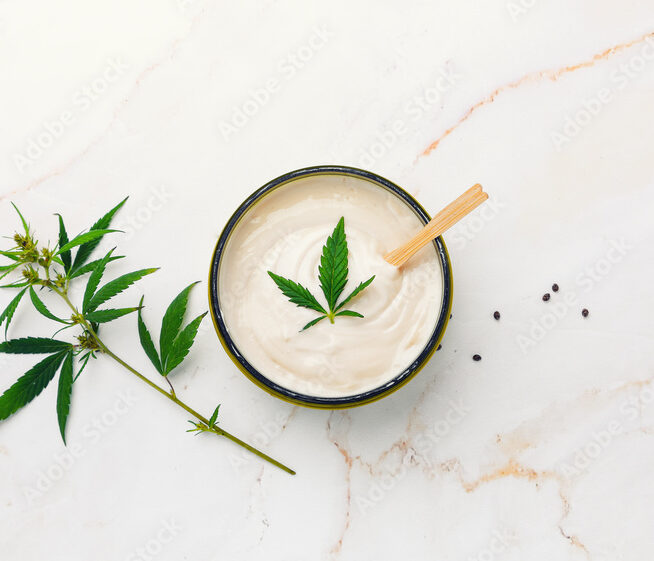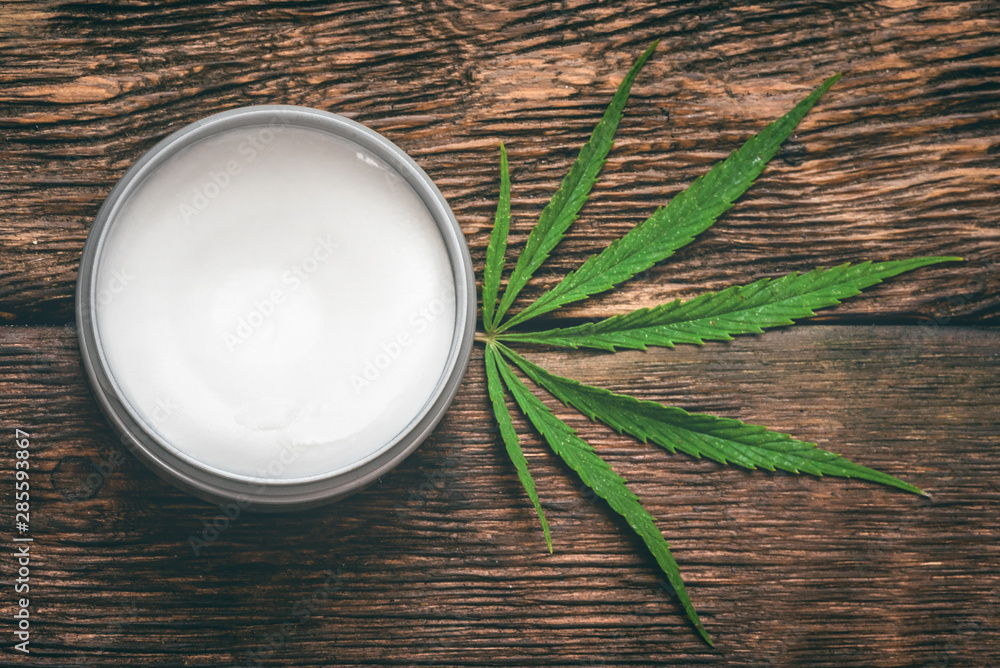Will Hemp Lotion Show Up on a Drug Test?
Introduction
In recent years, hemp-derived products have gained immense popularity for their potential health and wellness benefits. From CBD oils to hemp-infused lotions, these products have found their way into our daily routines. However, as the use of hemp-based products increases, so do concerns about drug testing and potential complications arising from the use of these products. One common question that arises is whether hemp lotion can show up on a drug test. Let’s delve into this question to better understand the complexities surrounding hemp-based skincare.
Understanding Hemp Lotion
Hemp lotion, often referred to as hemp seed oil lotion or CBD lotion, is a topical product infused with hemp-derived compounds, primarily CBD (cannabidiol) and hemp seed oil. Unlike THC (tetrahydrocannabinol), which is responsible for the psychoactive effects of marijuana, CBD is non-psychoactive and is generally well-tolerated by most users. Hemp lotion is typically used to soothe and moisturize the skin, providing potential benefits such as relief from dryness, inflammation, and even muscle soreness.
Is Hemp Lotion Legal? Navigating the Hazy World of Hemp-Based Topicals
In recent years, there has been a surge in interest and popularity surrounding hemp-derived products, including hemp lotion. Many consumers are drawn to the potential benefits of hemp-infused topicals, such as moisturizing properties and the soothing effects on the skin. However, as with any product derived from cannabis plants, questions about legality inevitably arise. In this article, we will explore the legal status of hemp lotion and the key factors that determine its legality.
Understanding Hemp vs. Marijuana
Before delving into the legality of hemp lotion, it’s essential to differentiate between hemp and marijuana. Both hemp and marijuana are varieties of the Cannabis sativa plant, but they have distinct characteristics. The primary difference lies in their tetrahydrocannabinol (THC) content. THC is the psychoactive compound responsible for the “high” associated with marijuana. Hemp, on the other hand, contains very low levels of THC, typically less than 0.3% by dry weight, making it non-intoxicating.
The 2018 Farm Bill
One of the pivotal moments in the legalization of hemp in the United States was the passage of the Agriculture Improvement Act of 2018, commonly known as the 2018 Farm Bill. This legislation redefined hemp as an agricultural commodity and removed it from the Controlled Substances Act. Under the 2018 Farm Bill, hemp cultivation and the production of hemp-derived products, including hemp lotion, became legal at the federal level, provided that the THC content does not exceed 0.3%.
What is THC? Unraveling the Science and Impact of Tetrahydrocannabinol
In the world of cannabinoids, THC is the reigning superstar. The amoun of THC, however, may present risks when taking urine tests.For a drug test, you do not want a false positive result. It’s the compound responsible for the psychoactive effects of cannabis and, for many, a source of both fascination and controversy. But what exactly is THC, and why does it have such a profound influence on the human body and mind? In this article, we’ll dive deep into the science and impact of tetrahydrocannabinol (THC) to demystify this enigmatic compound.
THC in a Nutshell
Tetrahydrocannabinol, or THC for short, is one of over a hundred different cannabinoids found in the cannabis plant. These cannabinoids interact with the endocannabinoid system (ECS) in our bodies, a complex network of receptors and molecules that help regulate various physiological processes. THC, however, has a special role within this system.
The Science Behind THC
THC is unique because it closely resembles a natural molecule in our bodies called anandamide. Anandamide is often referred to as the “bliss molecule” because it plays a key role in mood, memory, and pain perception. THC’s structural similarity to anandamide allows it to bind to the same receptors in the ECS, primarily the CB1 receptors found in the brain and central nervous system. This binding triggers a cascade of chemical reactions that result in the characteristic psychoactive effects of THC.
The Psychoactive Effects of THC
When THC activates CB1 receptors, it produces a wide range of effects, including:
- Euphoria: Many users report feelings of intense euphoria, happiness, and relaxation when under the influence of THC.
- Altered Perception: THC can alter sensory perception, leading to changes in how users perceive colors, sounds, and time.
- Increased Appetite: The famous “munchies” effect is a result of THC’s influence on the brain’s reward and appetite centers.
- Impaired Memory: Short-term memory and cognitive function can be temporarily impaired by THC use.
- Pain Relief: THC has analgesic properties and can provide relief from various types of pain, making it a valuable tool in medical cannabis.
THC Variants and Cannabis Strains
Different cannabis strains contain varying levels of THC, which can result in distinct effects. Sativa strains, for example, are often associated with increased energy and creativity, while indica strains tend to be more relaxing and sedating due to differences in THC and other cannabinoid ratios.
The Entourage Effect
THC rarely acts alone in the cannabis plant. It interacts with other cannabinoids, such as CBD (cannabidiol), and a plethora of aromatic compounds called terpenes. This synergy among cannabis compounds is known as the entourage effect. It suggests that the combined presence of multiple compounds can modify and enhance the overall therapeutic or psychoactive effects of the plant.
Medical Applications of THC
Beyond recreational use, THC has shown promise in the field of medicine. It can be used to treat a variety of conditions, including:
- Chronic Pain: THC’s analgesic properties can help alleviate chronic pain, making it a valuable option for patients with conditions like fibromyalgia or multiple sclerosis.
- Nausea and Vomiting: THC has antiemetic effects, making it effective in reducing nausea and vomiting, particularly in cancer patients undergoing chemotherapy.
- Appetite Stimulation: In cases of severe appetite loss, such as in HIV/AIDS or cancer patients, THC can help stimulate appetite and combat wasting syndrome.
- PTSD and Anxiety: While high doses of THC can exacerbate anxiety, low to moderate doses may have anxiolytic effects and can help manage symptoms of post-traumatic stress disorder (PTSD).
Conclusion
Tetrahydrocannabinol (THC) is a complex and versatile compound that has captured the attention of scientists, medical professionals, and recreational users alike. Its unique ability to bind to our endocannabinoid system’s receptors, along with its psychoactive properties, has led to a diverse range of applications and experiences. As research into cannabinoids continues to expand, our understanding of THC’s potential benefits and risks will undoubtedly become even more nuanced. Whether you’re seeking therapeutic relief or simply curious about the world of cannabis, THC remains a captivating molecule with much to offer.
State Regulations
While the 2018 Farm Bill legalized hemp at the federal level, it allowed states to establish their own regulations and oversight of hemp cultivation and processing. As a result, the legality of hemp lotion can vary from state to state. Some states have embraced the hemp industry and have clear regulations in place, while others may have stricter restrictions or prohibitions.
Product Labeling and Testing
To ensure compliance with federal and state laws, reputable manufacturers of hemp lotion adhere to strict guidelines for product labeling and testing. Proper labeling includes information about the product’s THC content, which should not exceed the 0.3% threshold. Additionally, third-party testing is often conducted to verify the accuracy of these claims, providing consumers with confidence in the product’s legality and safety.
Legal Risks and Concerns
While hemp lotion is generally legal, there are some important caveats to consider. First, the legal landscape surrounding cannabis is continuously evolving, and regulations may change. Second, individuals should be cautious when purchasing hemp-derived products from unverified sources, as some products may contain higher levels of THC than advertised. This can potentially lead to legal issues, especially in states with strict marijuana laws.
Conclusion
In conclusion, hemp lotion is legal at the federal level in the United States, thanks to the passage of the 2018 Farm Bill. However, its legality can vary from state to state, so it’s crucial to be aware of local regulations. Consumers should also exercise caution and purchase hemp lotion from reputable sources to ensure the product complies with legal THC limits. As long as consumers stay informed and make informed choices, they can enjoy the potential benefits of hemp lotion without running afoul of the law.
Hemp Lotion and Drug Testing
The primary concern with hemp lotion and drug testing stems from the possibility of trace amounts of THC present in some hemp-derived products. While these amounts are typically minimal, they could potentially show up on a workplace drug test, especially if you use the product regularly and in significant quantities. So frequency of use may have an inluence.
Here are some factors to consider when it comes to hemp lotion and drug testing:
- THC Levels: The amount of THC in hemp-derived products varies depending on the source and the manufacturing process. According to federal regulations in the United States, hemp-derived products must contain less than 0.3% THC to be considered legal. While this level is insufficient to produce psychoactive effects, it could potentially trigger a positive drug test result.
- Sensitivity of the Test: Standard drug tests, such as urine or saliva tests, are designed to detect the presence of THC metabolites. While the likelihood of testing positive from using hemp lotion is low, it is not impossible, especially if you use the product liberally.
- Cross-Contamination: There’s also the possibility of cross-contamination with THC during the manufacturing process. This is more likely with less reputable brands or products that aren’t rigorously tested for purity.
- Federal workers should check with the Federal Drug Administration. about drug screening. If you are not sure, seek legal advice and talk to your employer about hemp lotionand a workplace drug test. The short answer is – when in doubt ask, before giving urine samples.
Mitigating the Risk
If you’re concerned about hemp lotion causing a positive drug test result, there are steps you can take to mitigate the risk:
- Research the Product: Look for products from reputable brands that provide third-party lab testing results. These reports can confirm the THC content in the product and ensure it complies with legal limits.
- Check the THC Content: Opt for products labeled as “THC-free” or “0% THC” to reduce the risk further. It is possible to find hemp-derived CBD products that would not show up in drug testing (i.e. urine tests) giving false-positive results. Simply avoid
- Use Sparingly: Limit your usage of hemp lotion and apply it sparingly to reduce the likelihood of THC absorption through the skin.
- Communicate with Your Employer: If you are subject to drug testing for employment, consider discussing your use of hemp lotion with your employer to avoid any misunderstandings.
Conclusion
While the risk of hemp lotion causing a positive drug test result is relatively low, it is not entirely impossible. To minimize this risk, it’s essential to do your due diligence when selecting a product, ensuring it comes from a reputable source with transparent testing practices. Hemp lotion can provide numerous benefits for your skin, but it’s always wise to be informed and make choices that align with your individual needs and circumstances. As the landscape of hemp-derived products evolves, staying informed and cautious is key to enjoying the potential benefits without unwanted consequences. Make sure your cbd topicals have a low to zero thc content. Higher concentrations of thc may present a risk for a cbd drug test. Again, try cbd topical products with zero to ver low thc levels. Then tell your employer, so that together you can take a closer look at the situation.

